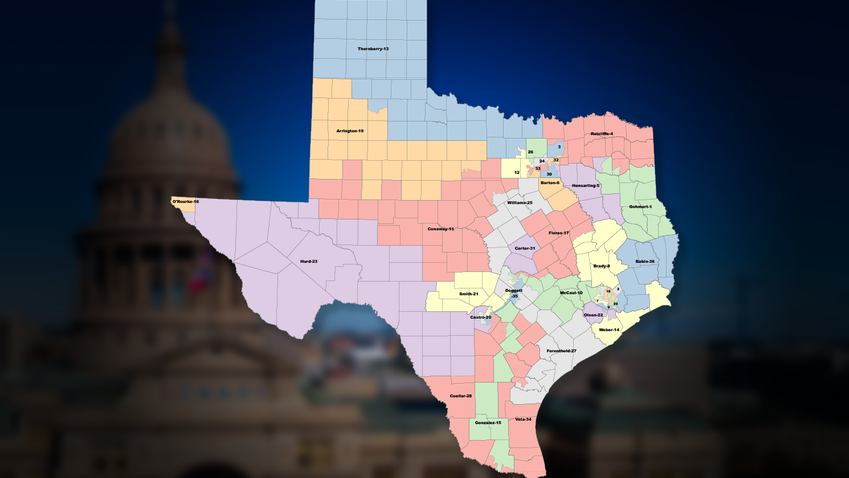
Texas Faces Critical Legal Showdown Over New Congressional Map
This week, a panel of federal judges in El Paso will determine whether Texas can utilize its newly drawn congressional map for the upcoming 2026 elections. This decision arises amid intense political pressure and ongoing legal battles surrounding the state's electoral boundaries, stirring a complex web of partisan interests and potential voter disenfranchisement.
A Closer Look at the Controversy
In an effort to boost their Republican representation in the U.S. House, Texas lawmakers undertook a mid-decade redistricting, a move that has drawn criticism and legal challenges from advocacy groups claiming racial discrimination. The plaintiffs argue that the new boundaries violate the Voting Rights Act, contending that the reconfigured districts disproportionately harm Latino and Black voters by diluting their electoral power. They seek an injunction to prevent the state from using these maps in the midterms, suggesting a return to the previous versions used in the last two elections.
The Stakes are High
The implications of this ruling extend beyond Texas, as it is intertwined with a larger national narrative about gerrymandering and voter rights. Legal experts have noted that the case’s outcome could influence congressional control, depending on whether the judges allow the new districts to stand. Predictions suggest that losing majority-minority districts could substantially shift power dynamics, especially in key areas like Dallas, Houston, and San Antonio.
Examining the Political Landscape
The backdrop for this legal battle is the growing partisan contention spurred by former President Trump, who has reportedly pressured Texas lawmakers to create more Republican seats. Observers point out that this request has turned the state's redistricting process into a partisan struggle that questions the integrity of the electoral process itself. As new evidence emerges, including assertions from the U.S. Department of Justice regarding racial implications in the redistricting, the judges will need to navigate a complicated maze of political motivations and legislative justification.
Looming Deadlines Drive Urgency
Judges will face pressing timelines, with the candidate filing deadline set for December 8. With the pressure mounting, all parties are acutely aware that a decision is vital for Texas’s electoral preparations. "All of this, every part of this, is about the clock right now," remarked Justin Levitt, a voting rights expert. Timing is critical as each side maneuvers for an early resolution.
The Broader Context of Gerrymandering
This legal challenge is not an isolated incident but rather part of a broader national trend in which multiple states have faced similar gerrymandering accusations. Experts have noted that many states are exploring attempts to redefine electoral maps in a bid to secure partisan advantages ahead of the upcoming midterms.
Judicial Perspectives on the Matter
The panel of judges, which includes appointees from both Democratic and Republican administrations, will weigh the arguments carefully. Their past rulings indicate an understanding of the complexities involved in balancing political interests with constitutional protections against racial discrimination. If the judges rule against Texas, they may roll back the new gerrymandered map and reinstate the previous electoral configurations to ensure fair representation ahead of the elections.
The Consequences for Voter Representation
Failure to address these issues could yield dire outcomes for minority voters in Texas. Shifts in district boundaries can fundamentally alter electoral outcomes, and losing representation might amplify feelings of disenfranchisement among voters. As advocates emphasize, any alteration to majority-minority districts threatens the foundational principle of equal representation.
Conclusion: Emphasizing the Importance of Fair Representation
The upcoming court ruling will be pivotal, not just for Texas but for the integrity of political representation across the United States. Stakeholders, from local voters to national political figures, are watching closely as the judiciary is called upon to safeguard democratic ideals amidst an increasingly polarized environment. For Texans, staying informed and engaged with these developments is essential to ensure their voices are heard in the political arena.
 Add Element
Add Element  Add Row
Add Row 



Write A Comment